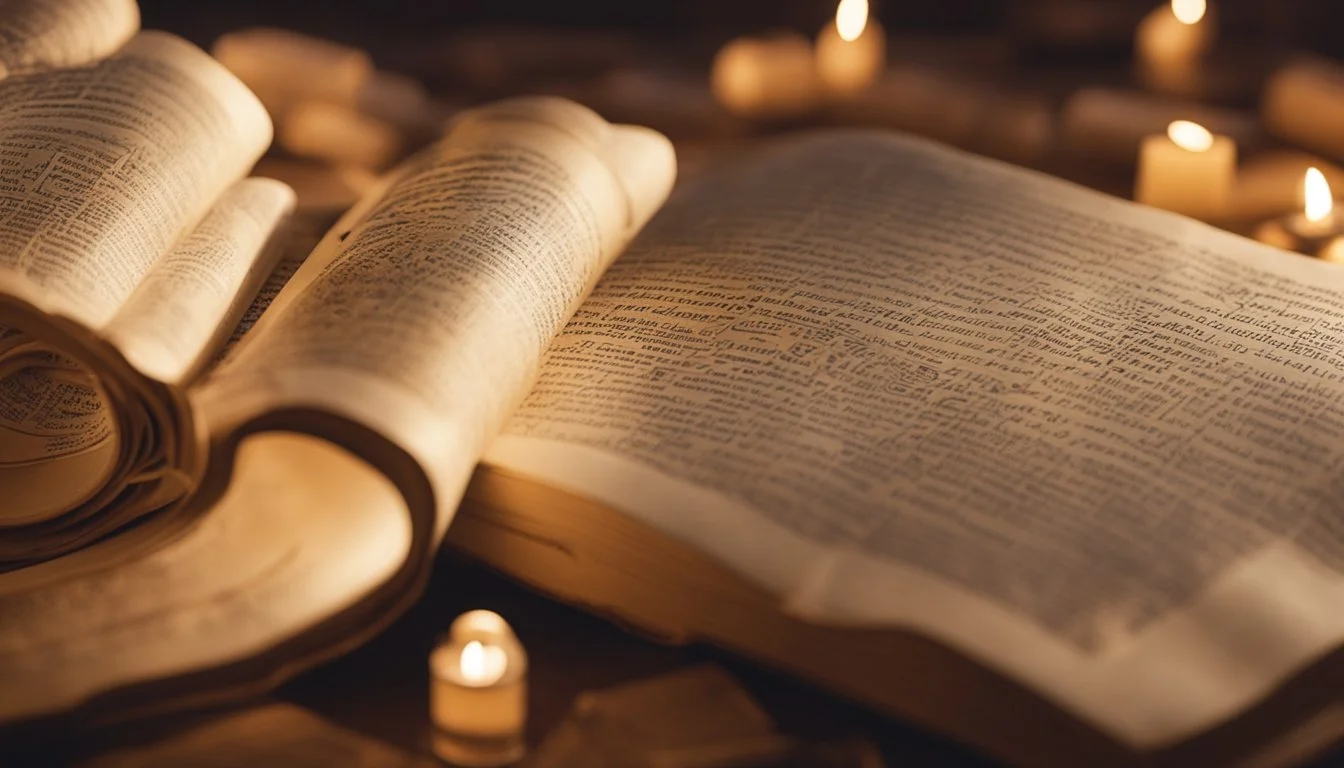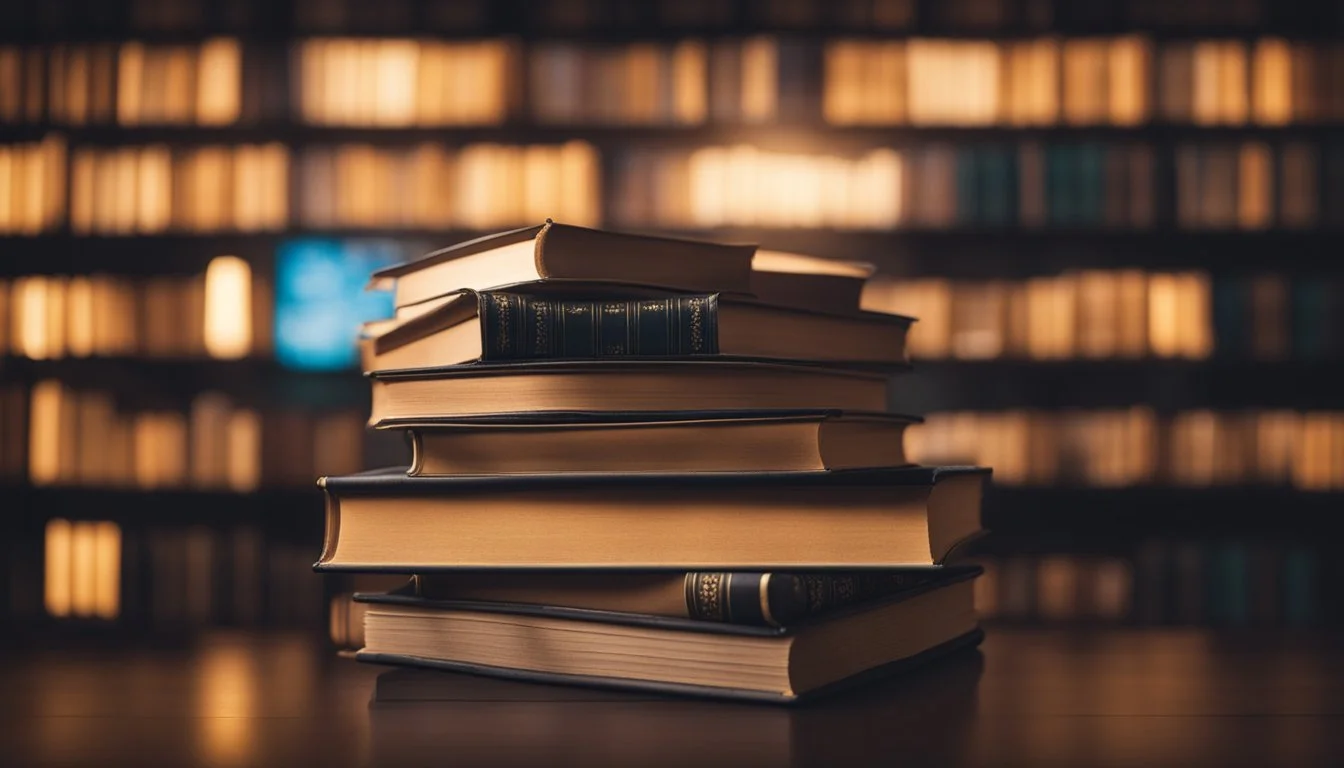8 Documentaries on the History of Literature
Exploring Literary Legacy
Literature has long been a cornerstone of human culture, shaping societies and igniting intellectual movements. Documentaries offer a unique lens into the history of literature, unraveling the intricate lives of luminary authors and the environments that influenced their masterpieces.
These films serve as a window into the world of literary giants, providing insights not just into their works but also their personal struggles, triumphs, and the socio-political contexts that shaped their writing. Whether you are a seasoned literature enthusiast or a curious newcomer, these documentaries promise to enrich your appreciation for the timeless art of storytelling.
1) 'Shakespeare: The Hidden Truth' (2013/2014)
"Shakespeare: The Hidden Truth" is a documentary that questions the well-established authorship of William Shakespeare's plays.
Directed by Jørgen Friberg, the film follows Norwegian church organist and amateur cryptographer, Petter Amundsen, who claims to have deciphered hidden messages in Shakespeare's works.
Amundsen posits that these messages suggest Francis Bacon wrote the Shakespearean plays. The documentary explores these controversial claims, presenting them through engaging narrative and interviews.
Actor and academic Robert Crumpton, a staunch supporter of traditional Shakespeare authorship, travels to Norway to confront Amundsen’s theories.
The documentary delves into a mysterious cult and buried treasure, adding layers of intrigue and speculation. It provides insights into the often-debated topic of Shakespearean authorship, backed by historical analysis and personal conviction.
For more information on this film, visit IMDb.
2) 'The Story of Latin Influences'
Latin American literature is rich and diverse, with influences spanning centuries and crossing borders.
One notable documentary in this area is "Latin American Literature" (2024). This film explores the works of legendary writers like Borges, Neruda, Arlt, Vallejo, and Carpentier. It offers insight into how their literary contributions have shaped and influenced Latin American culture.
"Living Los Sures" (2014) is another significant piece. This documentary captures the essence of the southside of Williamsburg, Brooklyn, known as Los Sures, through the eyes of long-term Latinx residents. It includes forty short documentaries that showcase the development of this vibrant neighborhood.
Lastly, "The Latino List" (2011) by Timothy Greenfield-Sanders features 16 prominent figures from the Latinx community in the U.S. They discuss their experiences, reflecting on the intricate landscape of identity, culture, and literature.
Each of these documentaries provides a unique perspective on Latin influences, offering a deeper look into the history and evolution of Latin American literature.
3) 'Gutenberg's Press and Renaissance'
Johannes Gutenberg's invention of the printing press in the 15th century was a pivotal moment in the history of literature. It marked the transition from manuscript culture to print culture, significantly impacting the dissemination of knowledge.
1. The Machine That Made Us (2008)
Stephen Fry explores the story of Gutenberg, delving into the intricacies of the first printing press and its profound effect on society. Fry’s journey includes a hands-on attempt to recreate the original press and an examination of why Gutenberg’s invention was so revolutionary. IMDb Link
2. Printing Press - The Machine That Made Us (Year Unknown)
This documentary presents a compelling narrative about how Gutenberg’s press helped spread Renaissance ideas across Europe. It highlights the technical challenges and the innovative spirit that led to one of humanity’s greatest inventions. More Info
3. Inside the Mind of a Genius: Johann Gutenberg (Year Unknown)
This film provides an in-depth look at Johann Gutenberg's life, exploring his motivations for creating the press and its subsequent influence on the Renaissance. The documentary balances historical inquiry with an exploration of Gutenberg's personal journey. More Info
4) 'Epic Tales of the Greeks'
Greek mythology has inspired numerous documentaries that delve into its rich and fascinating stories. These tales have captivated audiences for generations. Here are four notable documentaries that explore the epic tales of the Greeks:
Legend of the Minotaur (Year: Unknown) - This documentary explores the myth of the Minotaur, a creature born from an ill-fated union between Pasiphae, the wife of King Minos, and a bull sent by Poseidon. The story delves into themes of punishment and infatuation. More Information
Clash of the Gods (2009) - Produced by the History Channel, "Clash of the Gods" is a series that examines various mythological narratives, focusing on both Greek and Norse mythologies. The series delves deep into the legendary tales and characters from ancient Greece. More Information
The Odyssey Explained In 25 Minutes (Year: Unknown) - This succinct documentary provides an overview of Homer's "Odyssey," one of the seminal works of Greek literature. It highlights the adventures and trials of Odysseus as he attempts to return home after the Trojan War. More Information
The Epic Tale of Jason and The Argonauts (Year: Unknown) - This documentary covers the journey of Jason, the son of Aeson, in his quest for the Golden Fleece. The tale is enriched with the participation of notable figures such as Hercules, Medea, and Orpheus, who join Jason on his perilous adventure. More Information
5) 'Romanticism: Birth and Growth'
The documentary "The Romantic Revolution" (2022) sheds light on the transformative period from 1800 to 1850. This era was marked by significant upheavals, including revolutions and industrial change. Despite the chaos, it fostered immense artistic and literary innovation, featuring figures like William Blake and Victor Hugo. IMDb
"Romanticism in England" explores the foundation of Romanticism in the late eighteenth century. Political and cultural shifts paved the way for this movement, leading to changes in national sentiment and artistic expression. This documentary delves into the progression of Romanticism in the context of British history. More Info
"The Romantics" (2006) is a BBC documentary series hosted by Peter Ackroyd. It narrates the journey of Romanticism through three episodes: Liberty, Nature, and Eternity. The series highlights the personal and political passions of Romantic pioneers and their contributions to modern imagination. IMDb
6) 'Modernism: A Literary Movement'
Modernism emerged in the late 19th and early 20th centuries as a groundbreaking movement in literature. It sought to break away from traditional writing methods, embracing innovative forms and expressions.
Characterized by a self-conscious approach, modernist writers such as Ezra Pound championed the idea of making literature new. This call for innovation resulted in unique narrative techniques and experimental styles.
Centers of modernist thought included cities like Berlin, Vienna, and Paris. Each region developed its unique take on modernism, contributing to the diversity within the movement.
Prominent figures in modernism included Virginia Woolf and W.B. Yeats, both of whom also engaged in literary criticism. Woolf's essays and Yeats's critical writings played significant roles in shaping modernist theory.
The modernist movement was not uniform but comprised various strands. These different interpretations and approaches highlight the plurality within modernism.
For more information on modernism as a literary movement, visit Wikipedia.
7) 'Postcolonial Voices'
"Postcolonial Voices" (2013) explores the rich legacy of postcolonial literature in former colonies. It delves into the works of prominent authors from Africa, the Caribbean, and Asia, examining how their writings reflect the struggles and triumphs of their nations. The documentary provides insights into how literature has been used as a tool for resistance and cultural expression.
The film features interviews with writers, scholars, and critics who discuss the impact of colonialism on literature. They highlight key themes such as identity, displacement, and the challenge of decolonizing the mind.
Noteworthy authors like Chinua Achebe and Jamaica Kincaid are discussed, offering viewers a deeper understanding of their works and the contexts in which they were written. The documentary also includes rare archival footage and readings of pivotal texts.
For more information: IMDB
8) 'Digital Age Literature'
Digital Age Literature (2023) explores the transformation of literature with the advent of digital technology.
This documentary delves into how digital platforms, e-books, and interactive media have changed the ways people write, read, and perceive literature.
It examines the new forms of narrative that have emerged, highlighting the creative opportunities and challenges presented by the digital shift.
Experts in the field discuss the implications for authors and publishers, as well as the potential impacts on literary culture and reader engagement.
The film provides a comprehensive look at how digital advancements continue to shape the future of literature.
For more information on Digital Age Literature, visit this link.
The Evolution of Literary Traditions
Literary traditions have evolved significantly over time, transitioning from oral storytelling to the development of various written forms. This evolution reflects both technological advancements and cultural shifts.
Oral Storytelling to Written Word
Early literature emerged from oral storytelling traditions. Communities shared myths, legends, and folklore verbally. This practice fostered a collective memory and ensured that cultural narratives were passed down through generations. Epic poems like The Iliad and Beowulf exemplify oral traditions that were later transcribed.
The invention of writing systems marked a pivotal change. Mesopotamian cuneiform and Egyptian hieroglyphics allowed for more permanent records. Over time, these systems became more sophisticated, culminating in the widespread use of alphabetic scripts. The Gutenberg Press in the 15th century revolutionized access to written works, shifting literature from elite to more general readerships.
Significant Movements and Periods
Several significant movements and periods shaped the trajectory of literature. The Renaissance period revived classical learning and spawned notable works by authors such as Shakespeare and Cervantes. This era emphasized humanism and individual expression.
The Enlightenment period focused on reason and scientific thought, influencing writers like Voltaire and Swift. Romanticism followed, reacting against Enlightenment rationalism, emphasizing emotion and nature through the works of poets like Wordsworth and Shelley.
The Modernist movement of the early 20th century broke away from traditional forms and experimented with narrative structures and themes. Key figures include James Joyce and Virginia Woolf. The digital age has further transformed literature, making it more accessible and interactive through digital texts and eBooks.
Influence of Literature on Society
Literature plays a crucial role in shaping cultural narratives and has a significant impact on social and political change. It serves as a mirror reflecting societal issues and as a catalyst for transformation.
Shaping Cultural Narratives
Literature has a profound effect on cultural narratives by sharing diverse experiences and viewpoints. These narratives shape society's understanding of history, identity, and norms. Writers often challenge prevailing ideologies and introduce new ways of thinking. Take, for instance, George Orwell's 1984, which altered perceptions of government surveillance and personal freedom. Classic works also preserve cultural heritage, ensuring that stories and traditions are passed down through generations.
Literature’s ability to foster empathy and cultural awareness shouldn't be underestimated. Through characters and settings, readers gain insight into lives and societies different from their own. This broadens perspectives and promotes cultural sensitivity.
Impact on Social and Political Change
Literature often serves as a powerful tool for social and political change. Harriet Beecher Stowe's Uncle Tom's Cabin played a pivotal role in the anti-slavery movement in the United States. Such works can mobilize public opinion and inspire action. Books exposing societal injustices can lead to reforms and policy changes.
Many literary works highlight issues like inequality, discrimination, and oppression. By raising awareness and inspiring debate, these works can pressure governments and institutions to implement change. Authors like Chinua Achebe and Gabriel Garcia Marquez have used their narratives to critique colonialism and political corruption. Literature’s influence is both enduring and transformative, sparking movements and changing perceptions.
Noteworthy Literary Figures
In examining the history of literature, several noteworthy figures stand out for their groundbreaking work and lasting influence. These individuals have significantly contributed to the literary world and offer a diverse representation of voices and perspectives.
Pioneers in Different Eras
Homer is one of the earliest literary figures, known for epic poems The Iliad and The Odyssey. These works have deeply influenced Western literature and remain foundational texts in the literary canon.
In the Middle Ages, Dante Alighieri emerged with The Divine Comedy, a monumental work in Italian literature that problematizes human morality and spirituality.
William Shakespeare revolutionized English literature in the Renaissance, with plays like Hamlet, Romeo and Juliet, and Macbeth, known for their deep human insights and innovative use of language.
The 19th century brought Charles Dickens, whose novels like Great Expectations and A Tale of Two Cities critiqued societal issues and delved into the complexities of human character.
Contributions of Diverse Voices
Toni Morrison, a Nobel and Pulitzer Prize-winning author, highlighted African American experiences in novels like Beloved and Song of Solomon, addressing themes of identity and history.
Another key figure, Gabriel García Márquez, brought magical realism to the forefront of Latin American literature with One Hundred Years of Solitude, blending fantastical elements with historical narrative.
In East Asian literature, Haruki Murakami has garnered global acclaim with works like Norwegian Wood and Kafka on the Shore, known for their surreal storytelling and existential themes.
Alice Walker made significant contributions with The Color Purple, a novel that tackles racism and sexism in early 20th-century America, earning critical praise and a Pulitzer Prize.







